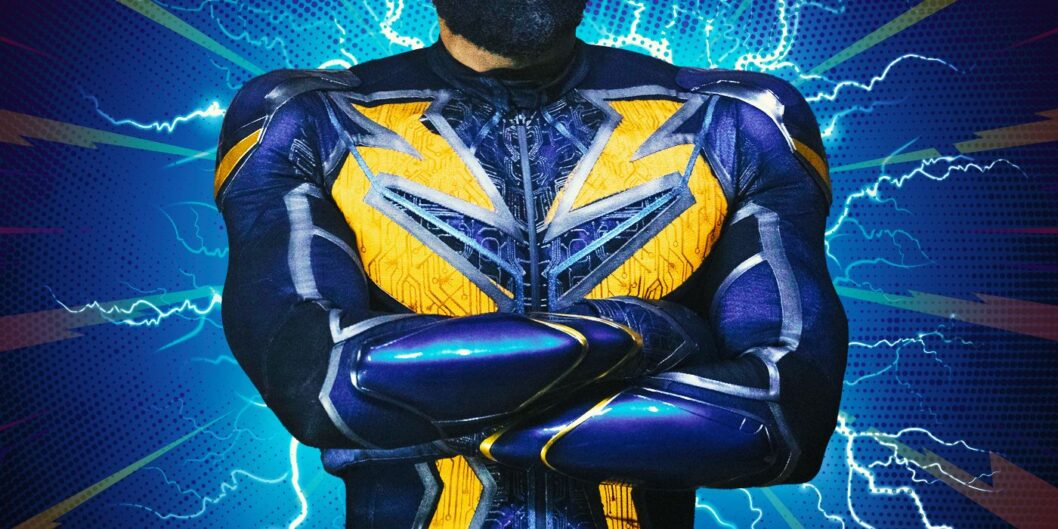Black Lightning: A Unique Addition to the Superhero Genre
As the superhero genre continues to dominate television, the CW’s Black Lightning has carved out a distinctive space, focusing on real-world issues intertwined with the fantastical elements of its narrative. Premiered in 2018 and concluding in 2021, the show portrays the story of Jefferson Pierce, played by Cress Williams, who grapples with his dual life as a family man and a superhero fighting for justice against systemic oppression.
Groundbreaking Storytelling and Themes
Unlike its predecessors in the Arrowverse such as The Flash and Arrow, which predominantly emphasize themes of science and individual heroism, Black Lightning tackles pressing societal challenges like systematic racism and community struggles. The show’s narrative revolves around the Pierce family, showcasing their collective fight against oppression and dramatically amplifying the emotional stakes. This unique focus on familial bonds and unity, combined with its liberal approach to storytelling, provides a refreshing lens through which a diverse audience can engage with the superhero genre.
With its well-crafted character arcs, Black Lightning has resonated with many viewers, as evidenced by its diverse audience ratings and discussions around its themes on social media. Celebrating its sixth anniversary this year presents an opportunity for fans, both old and new, to revisit a series that embodies the strength of community and the ongoing fight for justice.
Jefferson Pierce: The Balancing Act of Heroism and Parenthood
The character of Jefferson Pierce is integral to the show’s narrative. Jefferson’s portrayal as a principal balances his devotion to his students with his commitment to his family and community. Episodes such as Season 1’s “The Book of Consequences,” where his school is attacked, illuminate his struggles and triumphs in fulfilling both roles—demonstrating a dimension often absent from typical superhero narratives.
“When duty calls, I am a father first,” Pierce states in one episode, encapsulating his internal conflict. His journey emphasizes the significance of community loyalty and educational responsibility, themes explored more extensively than in other superhero shows.
Anissa and Jennifer Pierce: Empowering Female Superheroes
Anissa Pierce, portrayed by Nafessa Williams, introduces another layer to the narrative as a powerful character navigating her identity as a queer woman and her role as a superhero named Thunder. Unlike her father, Anissa pursues independence and fights for social justice, showcasing a character arc focused on self-discovery and activism. Her relationship with Grace Choi, played by Chantal Thuy, explores themes of acceptance and the complexities of navigating love and duty.
Similarly, Jennifer Pierce, played by China McClain, undergoes a profound transformation throughout the series. Initially reluctant to embrace her powers, Jennifer’s evolution into her superhero persona Lightning reflects her growing understanding of her role within her community. In pivotal episodes such as Season 2’s “The Book of Blood: Chapter One: Rebirth,” she realizes that her powers exist to serve a greater purpose, distinguishing her from many Arrowverse heroes who often focus on personal motivations.
In her ultimate emergence as a beacon of hope in Season 4, Jennifer symbolizes resilience and empowerment, particularly within the Black community, which adds depth to the show’s exploration of racial justice.
Cultural Significance and Legacy
Black Lightning stands as a bold exploration of themes often overlooked in the superhero genre, such as community engagement, systemic inequality, and familial loyalty. This ability to address vital social issues while still engaging audiences through gripping superhero narratives has solidified its place in television history.
With its unique perspective, Black Lightning invites viewers to examine the intersection of heroism and social justice from a familial lens, encouraging discussions around representation and inclusivity in media. As audiences continue to seek more diverse stories in the superhero genre, revisiting Black Lightning offers valuable insights and resonates profoundly with contemporary societal issues.
For those interested in a series rich in character development and social themes, Black Lightning is available for streaming on Netflix in the U.S. A compelling reminder of the power of storytelling, the series reaffirms that, while heroes may wear capes, it’s often their connections with family and community that truly empower them.









